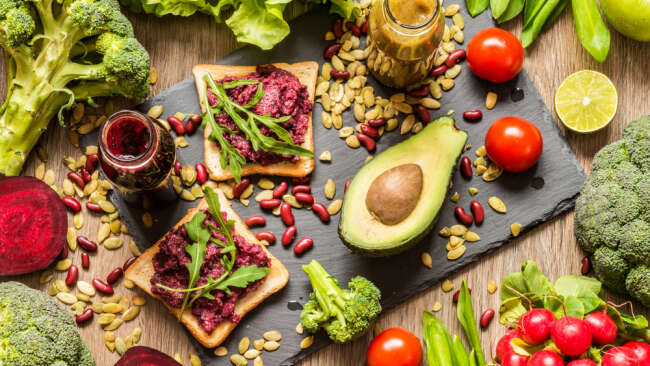A large long-term study has found that compared to meat-eaters, vegans have a higher risk of bone fractures.
The vegan diet has gained quite a following in the past few years. This is a plant-based diet that excludes all animal products including dairy, and eggs. According to the Vegan Society, there was an increase of 600% in the number of vegans in America between 2014 and 2017. Moreover, the food industry has also become more inclusive of different dietary needs.
This has led researchers to study the plant-based diet more closely and observe its implications on the human body.
This is the first comprehensive study on the risks of both total and site-specific fractures in people of different diet groups
Dr. Tammy Tong, lead author
Vegan Diet vs Science
A team of researchers from the Universities of Oxford and Bristol conducted a long-term study that investigated the risk of fractures in various diet groups. The study that began in 1993 recruited over 50,000 participants. Participants were categorized into four diet groups: meat-eaters, fish-eaters, vegetarians, and vegans.
Researchers followed them over an average of 18 years. Hospital records and death certificates helped collect data on fractures.
43% Higher Risk of Fractures in Vegans
The study included 29,380 meat-eaters, 8,000 pescatarians, 15,500 vegetarians, and 2,000 vegans. Researchers observed the risk of both total and site-specific fractures. They published their findings in the journal BMC Medicine.
A total of 3,931 fractures were reported over the course of the study. Compared to meat-eaters, vegetarians and vegans had a higher risk of total fractures. Furthermore, the risk of hip and leg fractures was also higher in vegans.
The authors of the study argue that the lower BMI in those following a plant-based diet could account for the higher risk of fractures. However, when researchers took BMI into account, they saw no significant difference in fracture risk between the four diet groups.
Previous studies have shown that low BMI is associated with a higher risk of hip fractures, and low intakes of calcium and protein have both been linked to poorer bone health. This study showed that vegans, who on average had lower BMI as well as lower intakes of calcium and protein than meat-eaters, had higher risks of fractures at several sites
Dr.Tammy Tong, lead author
Don’t Start Eating Meat Just Yet
However, before you switch to a meat-based diet it is important to recognize the limitations of the study. Firstly, the sample size of vegans was much small compared to meat-eater. Secondly, it is unclear whether the fractures occurred due to poor bone health or as a result of accidents. Moreover, the researchers failed to account for the use of calcium and vitamin supplementation among the participants.
Furthermore, the results cannot be generalized to other ethnicities or populations as the study included mostly white Europeans. To develop a causal link between diet and risk of fractures, further studies are needed that account for various physiological and environmental factors.
Reference:
Tong, T.Y.N., Appleby, P.N., Armstrong, M.E.G. et al. Vegetarian and vegan diets and risks of total and site-specific fractures: results from the prospective EPIC-Oxford study. BMC Med 18, 353 (2020). https://doi.org/10.1186/s12916-020-01815-3
Weikert C, Trefflich I, Menzel J, Obeid R, Longree A, Dierkes J, Meyer K,
Herter-Aeberli I, Mai K, Stangl GI, Müller SM, Schwerdtle T, Lampen A, Abraham K: Vitamin and mineral status in a vegan diet. Dtsch Arztebl Int 2020; 117: 575–82. DOI: 10.3238/arztebl.2020.0575




